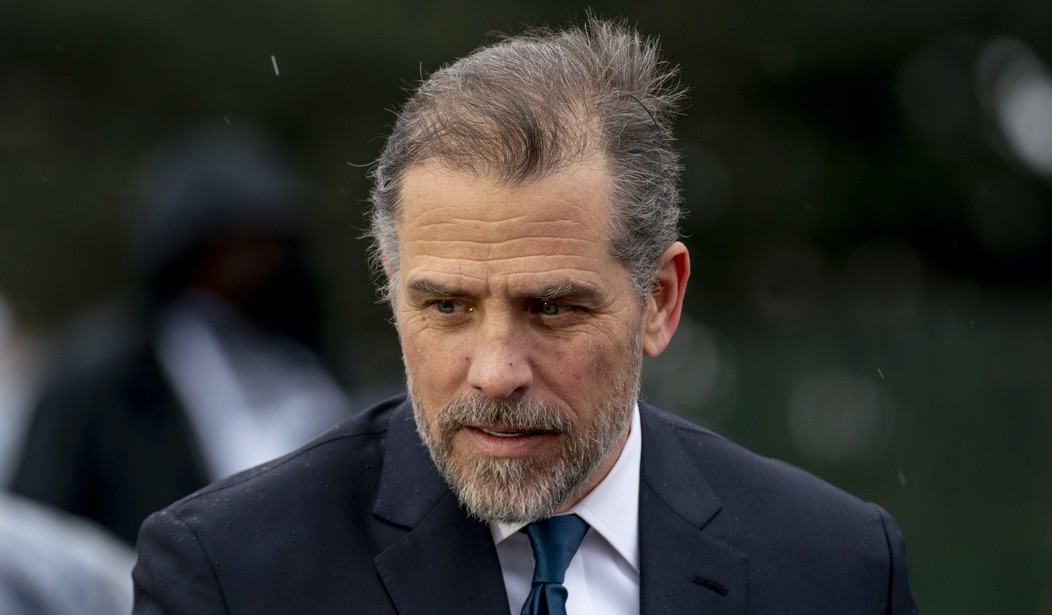The case of Hunter Biden’s missing handgun and the ATF investigation that followed has been a curiosity for many in the Second Amendment community since we first learned of the 2018 incident in which a pistol belonging to Biden was allegedly thrown into a trashcan by his late brother’s widow… only to turn up missing when she reported it to police. The gun was recovered a couple of days later, but as POLITICO reported last year, not before the Secret Service apparently intervened in the investigation.
But a curious thing happened at the time: Secret Service agents approached the owner of the store where Hunter bought the gun and asked to take the paperwork involving the sale, according to two people, one of whom has firsthand knowledge of the episode and the other was briefed by a Secret Service agent after the fact.
The gun store owner refused to supply the paperwork, suspecting that the Secret Service officers wanted to hide Hunter’s ownership of the missing gun in case it were to be involved in a crime, the two people said. The owner, Ron Palmieri, later turned over the papers to the Bureau of Alcohol, Tobacco, Firearms, and Explosives, which oversees federal gun laws.
The Secret Service says it has no record of its agents investigating the incident, and Joe Biden, who was not under protection at the time, said through a spokesperson he has no knowledge of any Secret Service involvement.
Days later, the gun was returned by an older man who regularly rummages through the grocery’s store’s trash to collect recyclable items, according to people familiar with the situation.
The incident did not result in charges or arrests.
But the alleged involvement of the Secret Service remains a mystery. One law enforcement official said that at the time of the incident, individual Secret Service agents at the agency’s offices in Wilmington, Del., and Philadelphia kept an informal hand in maintaining the former vice president’s security. The person cited an instance in 2019 when the Wilmington office of the Secret Service called the Delaware State Police to arrange security for a public appearance by Biden.
POLITICO obtained a copy of the 4473 that Hunter Biden filled out when he purchased the handgun, and discovered that he’d declared he was not “an unlawful user of, or addicted to, marijuana or any depressant, stimulant, narcotic drug, or any other controlled substance”, despite the fact that he was kicked out of the Navy Reserve after testing positive for cocaine and his substance abuse issues have since been acknowledged by Biden himself in his 2021 memoir Beautiful Things.
There were obviously a lot of questions surrounding the incident, particularly how Biden managed to avoid being charged for lying on the Form 4473, which is a federal crime. Blogger and investigative reporter David Codrea sought to find some answers by filing a Freedom of Information Act request with the ATF seeking any and all documents related to its investigation of Biden’s firearm, but on Tuesday a federal judge ruled that the public isn’t entitled to that information.
In a ruling Tuesday, U.S. District Court Judge Rudolph Contreras found that the public interest in the handling of any investigation by the Bureau of Alcohol, Tobacco, Firearms and Explosives into the episode was “significant,” but that the importance of Hunter Biden’s privacy as a private citizen outweighed the value of releasing any such records to the public.
“The privacy interest here is remarkably strong,” wrote Contreras, an appointee of President Barack Obama.
Contreras said Hunter Biden’s discussion of his drug problems in his memoir did not diminish his privacy interest in any records about the episode.
“Disclosure would reveal whether Hunter Biden was criminally investigated by ATF,” the judge wrote. “An individual’s public disclosure of information that could be potentially incriminating in a general sense does not reduce his privacy interest in whether he was the subject of a particular federal criminal investigation by a particular agency.”
Contreras’s decision won’t be appealed, according to Codrea, because of the slim chance of success, which means we’re not likely to learn any more about how the ATF and Secret Service handled the explosive and embarrassing revelations… at least not through official channels.
While I do understand the privacy concerns involved here, there are obvious and understandable questions about how Hunter Biden managed to avoid prosecution that are in the public interest, especially when ATF and DOJ have pursued similar charges against people without politically connected family members. We covered two such cases just last year, one in Connecticut and another in Michigan. In the Michigan case, the 19-year old who was arrested was also facing armed robbery charges in Las Vegas, but the Connecticut man who was charged wasn’t facing any additional charges. Instead, he was prosecuted after investigators failed to turn up evidence that he was involved in illegal gun sales; choosing instead to prosecute him for being an unlawful gun owner after he acknowledged to ATF agents that he regularly consumed cannabis as a way to self-medicate his PTSD.
In that case, prosecutors sought an 18-24 month prison sentence, though the federal judge overseeing the case ultimately sentenced the defendant to three years probation instead. Still, these cases show that the government does indeed prosecute people for the crime of owning guns while unlawfully using drugs, which makes the decision not to prosecute Hunter Biden for the same offense even more suspect.
The release of information about the ATF’s investigation might have answered those questions, but thanks to Contreras’s decision we’re left to speculate instead about how Hunter Biden managed to avoid consequences for crimes that have left average citizens with felony records. The judge’s order may put an end to this particular FOIA request, but it won’t put to rest the suspicions of many gun owners that Hunter Biden received preferential treatment from federal agencies thanks to Daddy’s connections and influence.








Join the conversation as a VIP Member